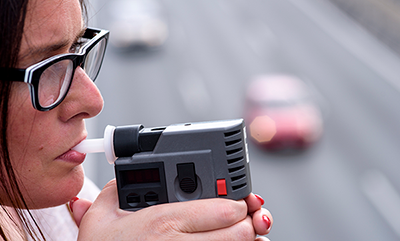New Grant to Develop Phone App for Intoxication.
 Almost one-quarter of the population ages 18 years and older reports binge drinking in the past month. Most people believe they can control drinking behavior on their own, yet underestimate how impaired they are when leaving a bar or driving home from a party, studies show. Smartphone technology, leveraging the long-studied connection between alcohol intoxication and changes in walking after drinking, allows for a novel form of alcohol use self-monitoring.
Almost one-quarter of the population ages 18 years and older reports binge drinking in the past month. Most people believe they can control drinking behavior on their own, yet underestimate how impaired they are when leaving a bar or driving home from a party, studies show. Smartphone technology, leveraging the long-studied connection between alcohol intoxication and changes in walking after drinking, allows for a novel form of alcohol use self-monitoring.
Professor Michael Stein, chair of health law, policy & management, and colleagues have received a new grant from the National Institute on Alcohol Abuse & Alcoholism (NIAAA) to test a phone app they call Alcogait that uses a person’s motion—for instance, speed and balance—to make estimates of levels of drunkenness.
The app, dubbed “A Machine Learning Approach for Inferring Alcohol Intoxication from Gait Data,” uses technology pioneered by co-investigator Emmanuel Agu from Worcester Polytechnical Institute, with testing done by Stein and Ana Abrantes of Brown University. The app will use accelerometer software built into existing smartphones that will automatically send data to a remote computer for analysis of steps and step timing. Stein’s group will perform a lab-based alcohol administration protocol and have participants walk when sober and after varying amounts of drinking.
Stein said the group’s hope is that Alcogait, running in the background of a standard smartphone, can be used preventively in real time to alert drinkers when they are reaching various blood-alcohol concentrations and when they are legally intoxicated, based on changes in gait across a population of drinkers.
“Self-monitoring of drinking is key to behavior change, but drinkers misperceive how much they’ve had to drink and how it’s affecting them,” Stein said. “We believe that if we can validate this one-of-a-kind phone app, it could have broad application and might mitigate the many negative consequences of binge drinking.”
Pilot testing of the app is expected to start in October.